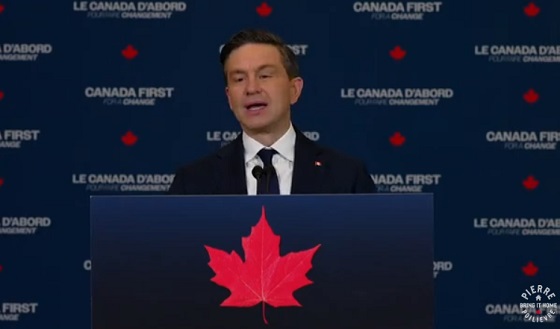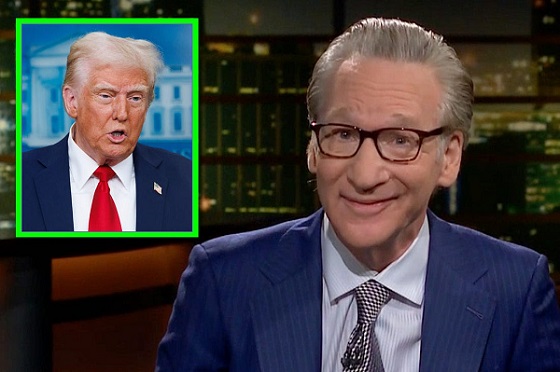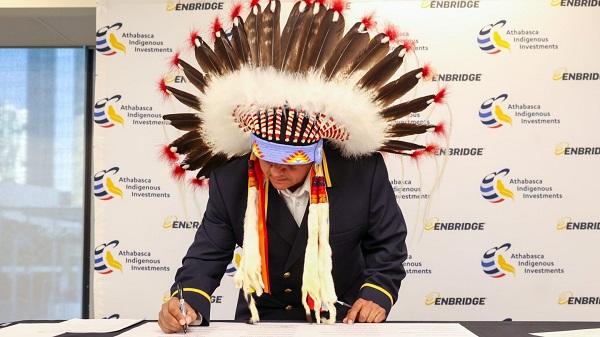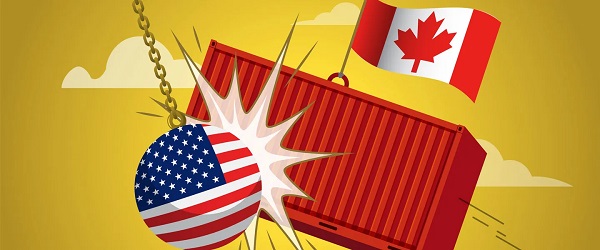2025 Federal Election
Does Canada Need a DOGE?

From the Fraser Institute
By Philip Cross
The legions of Canadians wanting to see government spending shrink probably look enviously at how Elon Musk’s Department of Government Efficiency (DOGE) is slashing some government programs in the United States, even if DOGE’s non-surgical chainsaw approach is controversial, to say the least.
Some problems are common to cutting any government’s spending. Ironclad job security for union employees with seniority means cuts are skewed disproportionately to junior staff still on probation, with the regrettable side effect of denying an injection of fresh blood into a sclerotic workforce. Cutting employees and not programs makes it easier for higher staffing to resume: as documented by Carleton University Professor Ian Lee in How Ottawa Spends, even prolonged bouts of austerity do not derail government spending from long-term trend of higher growth. Across the board cuts do not allow for the surgical removal of redundant or inefficient programs and poor performing employees.
Canada has some unique problems with federal government spending. Savoie documents how 41 per cent of federal civil servants are located in Ottawa, versus 16 per cent in Washington and 19 per cent in London, despite Canada having the most decentralized federation in the G7. The concentration in Ottawa partly reflects the exceptional influence exerted by central agencies on all departments. As well, University of Cambridge Professor Dennis Grube found Canada’s civil service was the most resistant to public scrutiny and the most risk adverse in a comparative study of public servants in the U.S., the United Kingdom, Australia, New Zealand and Canada.
Canada’s federal employees are among the most expensive anywhere. The average civil servant costs taxpayers $146,500 a year including all salary, benefits and costs such as computers and training. Multiplying this average cost by 366,316 federal employees yields a total labour bill of $53.7 billion, not including other spending such as $17.8 billion on consultants. All the recent increase in the ranks of the civil service happened in Justin Trudeau’s tenure, expanding 38.5 per cent after Stephen Harper had cut them 9 per cent between 2010 and 2015 in his determination to balance the budget.
While the cost of government employees has risen sharply, the services they provide to the public are dwindling as government spending increasingly is devoted to managing its unwieldy and bloated bureaucracy. As Savoie observes, unions like to paint civil servants as providing essential services such as food inspectors and rescue workers, when in reality most are involved in a vast web of “policy, coordination, liaison, and performance evaluation units.” The fastest growing occupations in the federal government are in administrative services and program administration, whose share of jobs rose from 25.1 per cent in 2010 to 31.9 per cent in 2023 according to the latest report from the Treasury Board.
A chronic problem is the fierce defense offered by public service unions in “protecting non-performers and insulating the public sector from effective outside scrutiny” as Savoie wrote. The refusal to acknowledge and root out non-performers depresses the morale of the average civil servant who’s unfairly tarred with the reputation of a minority. It also motivates the across-the-board chainsaw approach of DOGE, which critics then decry as not discriminating between good and bad employees. The latter could easily be targeted by senior managers, who know exactly who the non-performers are but cannot be bothered with the years of documentation and bureaucratic headaches needed to get rid of them. The cost of poor performers is substantial; if even 10 per cent of the civil service was eliminated as redundant non-performers, the government would save $5.4 billion a year. Potential savings are likely well over $10 billion.
The federal government potentially has enormous leverage in negotiating civil service pay and getting rid of non-performers, because it can unilaterally change the federal pension plan without negotiating with public-sector unions. The federal pension plan is so generous that it’s referred to as the “golden handcuffs” that tie employees to their jobs irrespective of their pay or working conditions. To protect their lucrative pensions, unions inevitably would be willing to make concessions that substantially lower the burden on Canada’s taxpayers and still improve morale within the civil service.
2025 Federal Election
Poilievre will make it harder for politicians to boost their portfolios, close Carney loopholes

From Conservative Party Communications
Canada can’t afford a fourth term of Liberal waste and scandals, says Poilievre, pledging an end to conflicts of interest, shadow lobbying and politicians using tax loopholes. Our plan will clean house with strong laws that end corruption and waste and put Canadians First—For a Change.
Conservative Leader Pierre Poilievre announced his plan to strengthen the Accountability Act to end the Lost Liberal Decade of corruption and insider dealings in Ottawa. The new rules will close loopholes like the one that Mark Carney used to be appointed as an ‘unpaid advisor’ and set government policy while he lined his own pockets.
“Mark Carney is already the most conflicted Prime Minister in Canadian history,” Pierre Poilievre said. “His conflicts touch everything – from his business interests in nuclear energy to real estate to income tax laws. He has a long record of putting his interests first when he was supposed to be working for you. The last ten years have been about the Liberals, the next decade should be about you–For a Change.”
Poilievre outlined the highlights of his plan:
- Ban shadow lobbyists and close the Carney loophole by requiring anyone advising the government directly or indirectly, who stands to gain financially from their advice, to register as a lobbyist.
- Ban politicians from making decisions that benefit themselves or their families disproportionately, and require Ethics Commissioner approval and full public disclosure of all personal interests.
- Increase fines for ethics violations to $10,000.
- Tax transparency. Require anyone running for public office to disclose where they paid taxes for the last seven years.
- Require cabinet ministers to divest fully from tax havens and disclose assets to the Office of the Conflict of Interest Commissioner, with penalties for non-compliance. No more so-called blind trusts that only blind the public.
- Require party leaders to disclose their assets within 30 days of becoming leader and require Prime Ministers to divest their assets within 30 days of assuming office.
After being appointed as Trudeau’s senior economic advisor, Mark Carney never had to register as a lobbyist, disclose his conflicts of interest or answer to Canadians. He was able to advise the government behind closed doors despite media reports that he had a history of using such advisory positions to benefit Brookfield, the company he chaired, financially.
As an advisor to the UK government, he lobbied for expanded heat pump subsidies that would have benefited a heat pump company that Brookfield owned. The chairman of the company even admitted “Mark is working on our behalf in Government.”
As Prime Minister, Carney benefits from hiding his Brookfield funds in offshore tax havens because the current rules don’t require him to sell them, which is the only way to prevent a conflict of interest. The current rules let him get away with moving his assets into a so-called blind trust, but the only people who are left “blind” are Canadian voters, while Carney knows what is in the trust because he put it there.
“Under the Lost Liberal Decade, political insiders have cashed in while Canadians have lost out,” Pierre Poilievre said. “From insiders lobbying to escape criminal charges to hundreds of millions of your money given to well-connected firms who don’t even do the work they were hired for. It’s unethical, and it needs to be stopped.”
Canadians can’t afford a fourth Liberal term where well-connected insiders and Carney’s personal interests get a pass, while hard-working Canadians get the bill. We need to restore accountability with a new Conservative government that will end corruption and put Canada First – For a Change.
2025 Federal Election
Mark Carney To Ban Free Speech if Elected


 Dan Knight
Dan Knight
The former central banker, who now postures as a man of the people, made it clear that if the Liberals are re-elected, the federal government will intensify efforts to regulate what Canadians are allowed to see, say, and share online.
At a campaign rally in Hamilton, Ontario, Liberal leader Mark Carney unveiled what can only be described as a coordinated assault on digital freedom in Canada. Behind the slogans, applause lines, and empty rhetoric about unity, one portion of Carney’s remarks stood out for its implications: a bold, unapologetic commitment to controlling online speech under the guise of “safety” and “misinformation.”
“We announced a series of measures with respect to online harm… a sea of misogyny, anti-Semitism, hatred, conspiracy theories—the sort of pollution that’s online that washes over our virtual borders from the United States.”
He then made clear his intention to act:
“My government, if we are elected, will be taking action on those American giants who come across [our] border.”
The former central banker, who now postures as a man of the people, made it clear that if the Liberals are re-elected, the federal government will intensify efforts to regulate what Canadians are allowed to see, say, and share online. His language was deliberate. Carney condemned what he called a “sea of misogyny, anti-Semitism, hatred, conspiracy theories” polluting Canada’s internet space—language borrowed directly from the Trudeau-era playbook. But this wasn’t just a moral denunciation. It was a legislative preview.
Carney spoke of a future Liberal government taking “action on those American giants who come across our borders.” Translation: he wants to bring Big Tech platforms under federal control, or at least force them to play the role of speech enforcers for the Canadian state. He blamed the United States for exporting “hate” into Canada, reinforcing the bizarre Liberal narrative that the greatest threat to national unity isn’t foreign actors like the CCP or radical Islamists—it’s Facebook memes and American podcasts.
But the most revealing moment came when Carney linked online speech directly to violence. He asserted that digital “pollution” affects how Canadians behave in real life, specifically pointing to conjugal violence, antisemitism, and drug abuse. This is how the ground is prepared for censorship: first by tying speech to harm, then by criminalizing what the state deems harmful.
What Carney didn’t say is just as important. He made no distinction between actual criminal incitement and political dissent. He offered no assurance that free expression—a right enshrined in Canada’s Charter of Rights and Freedoms—would be respected. He provided no definition of what constitutes a “conspiracy theory” or who gets to make that determination. Under this framework, any criticism of government policy, of global institutions, or of the new technocratic order could be flagged, throttled, and punished.
And that’s the point.
Mark Carney isn’t interested in dialogue. He wants obedience. He doesn’t trust Canadians to discern truth from fiction. He believes it’s the job of government—his government—to curate the national conversation, to protect citizens from wrongthink, to act as referee over what is and isn’t acceptable discourse. In short, he wants Ottawa to become the Ministry of Truth.
Why They Don’t Actually Care About Antisemitism
The Liberal establishment talks a big game about fighting hate—but when it comes to actual antisemitic violence, they’ve shown nothing but selective enforcement and political cowardice.
Let’s look at the facts.
In 2023, B’nai Brith Canada recorded nearly 6,000 antisemitic incidents, including 77 violent attacks—from firebombed synagogues to shots fired at Jewish schools in Montreal and Toronto. This wasn’t a marginal increase. It was a 208% spike in violent antisemitism in a single year.
Statistics Canada echoed the same alarm bells. Jews—who make up just 1% of Canada’s population—were the victims of 70% of all religiously motivated hate crimes. That’s nearly 900 recorded incidents, up 71% from the previous year. Then came October 2023, when Hamas launched its attack on Israel—and the wave of hate turned into a tsunami: a 670% increase in antisemitic incidents across the country. Jewish schools, synagogues, and community centers were hit with bomb threats, arson attempts, and intimidation campaigns. This was a national security issue, not just a policing matter.
And yet, the government’s response? Virtually nonexistent.
Case in point: the Montreal Riot, November 2024. A 600-person mob, waving anti-NATO and pro-Palestinian banners, turned violent—setting fires, smashing windows, and attacking police. Amid this chaos, a man was filmed screaming “Final Solution”—a direct reference to the Nazi plan to exterminate the Jews. It went viral. There was no ambiguity, no misunderstanding. It was a public call for genocide.
So what happened?
Three arrests. None for hate crimes. None related to antisemitism. Montreal Police Chief Fady Dagher insisted there were “no confirmed antisemitic acts,” and as of early 2025, no hate crime charges have been filed against the individual caught on camera.
That man, as it turns out, owned a Second Cup franchise. His punishment? His café was shut down by the company. Not by law enforcement. Not by hate crime investigators. A corporate HR department showed more backbone than Canada’s justice system.
And this is what reveals the truth: they don’t care. They’ll enforce hate speech laws when it’s politically convenient—when it can be used to silence critics, crush dissent, or placate woke constituencies. But when Jewish communities are being threatened, attacked, and terrorized? The same laws suddenly go limp. The same political class that claims to protect minorities becomes paralyzed. They won’t touch it. Because confronting real antisemitism would require standing up to their political allies in activist circles, university campuses, and radical protest movements.
This isn’t an accident. It’s a pattern.
The Liberals aren’t weak on antisemitism because they’re unaware of it. They’re weak on it because they don’t see political value in enforcing the law when it conflicts with their ideological allies. Their obsession isn’t with hate speech—it’s with controlling “wrong” speech. And what qualifies as “wrong” isn’t defined by law or principle. It’s defined by what the Liberal establishment deems unacceptable.
Their target isn’t violent bigotry. It’s dissent. They’ll chase down citizens for questioning carbon taxes or criticizing globalist policy—but when Jewish schools get shot at, or someone calls for genocide in the street, they shrug.
This isn’t leadership. It’s selective justice. And it proves, beyond any doubt, that their agenda was never about protecting Canadians. It was always about protecting control.
The Online Harms Act: Carney’s Blueprint for Speech Control
This isn’t hypothetical. Mark Carney’s remarks in Hamilton mirror the exact logic and intent behind the Online Harms Act (Bill C-63)—legislation drafted under the Liberal banner and introduced in 2024 that pushes Canada into territory no free society should accept.
At its core, Bill C-63 hands the federal government sweeping powers to police digital speech. It creates a Digital Safety Commission, an unelected bureaucratic authority empowered to monitor, investigate, and punish online platforms and individuals for content deemed “harmful.” That word—harmful—is never concretely defined. It includes things like “hate speech,” “conspiracy theories,” and vague notions of “harm to children,” but it’s written broadly enough to be used as a political weapon.
The most chilling provision? Preemptive imprisonment. Under this law, Canadians could be jailed for up to a year—without having committed a crime—if a judge believes they might post something harmful in the future. This isn’t law enforcement. This is thought policing.
Carney didn’t just echo this approach—he amplified it. In his Hamilton rally, he described the internet as being flooded with “misogyny, anti-Semitism, hatred, conspiracy theories,” and laid blame on foreign content “washing over our borders from the United States.” He didn’t argue for open debate or for empowering users to challenge dangerous ideas. He argued for the state to intervene and shut them down.
He told Canadians that these ideas are “changing how people behave” and claimed his government will go after “those American giants” that allow this content to circulate. There’s no ambiguity here: this is a public declaration that a Liberal government under Mark Carney intends to censor, de-platform, and penalize dissenting views. Not illegal ones—just ones they don’t like.
And this isn’t new for him. Back in 2022, during the Freedom Convoy, Carney referred to protesters as committing “sedition” and demanded the government “thoroughly punish” them. These weren’t violent rioters or foreign agitators—these were working-class Canadians honking their horns and standing in the cold, protesting vaccine mandates. For Carney, their real crime was disobedience.
Carney’s view of speech is simple: if it challenges the ruling order, it’s dangerous. And now, with Bill C-63 on the table and Carney at the helm, he’s building the legal infrastructure to lock down the digital public square—not to protect Canadians from violence, but to protect the Liberal establishment from criticism.
That law is real. Carney’s agenda is real. And if he wins, enforcement is coming.
Final thoughts
This is the Canada Mark Carney envisions—one where citizens can’t speak freely online without first checking their views against government guidelines. A country where speech is no longer a right but a privilege granted by bureaucrats. A country where opposition isn’t argued with, it’s labeled harmful and erased.
There was a time when Liberals championed civil liberties. That era is over. The new Liberalism is authoritarian—cloaked in the language of safety and inclusion, but animated by control. Carney’s rally in Hamilton wasn’t a policy rollout. It was a warning to anyone who still thinks they live in a country where dissent is allowed.
They don’t want to fight hate. They want to define “wrong” speech—and then eliminate it. And by “wrong,” they mean anything the Liberal establishment disapproves of. Criticize the government, question the orthodoxy, challenge the state’s narrative, and you’ll be branded a threat. Not a citizen. Not a participant. A threat.
So here we are.
The speech laws are written. The censors are waiting. And Mark Carney is ready to pull the trigger.
This election isn’t about tax credits or campaign slogans. It’s about whether Canada remains a free country or slides deeper into soft tyranny, one regulation, one commission, one silenced voice at a time.
There is a choice. And the choice is this: bring it home—restore freedom, restore sanity, restore this country.
Or: hand the keys to the same people who think you’re the problem for having the nerve to think for yourself.
Subscribe to The Opposition with Dan Knight .
For the full experience, upgrade your subscription.
-

 Alberta1 day ago
Alberta1 day agoProvince introducing “Patient-Focused Funding Model” to fund acute care in Alberta
-

 2025 Federal Election6 hours ago
2025 Federal Election6 hours agoMark Carney To Ban Free Speech if Elected
-

 Carbon Tax2 days ago
Carbon Tax2 days agoTrump targets Washington’s climate laws in recent executive order
-

 International2 days ago
International2 days agoBill Maher Breaks His Silence on His Private Meeting With President Trump
-

 Canadian Energy Centre1 day ago
Canadian Energy Centre1 day agoWhy nation-building Canadian resource projects need Indigenous ownership to succeed
-

 2025 Federal Election1 day ago
2025 Federal Election1 day agoBLOCKBUSTER REPORT: Canada’s ties to Wuhan Institute of Virology and creation of COVID uncovered by Sam Cooper of The Bureau
-

 Business1 day ago
Business1 day agoTrumpian chaos—where we are now and what’s coming for Canada
-

 espionage21 hours ago
espionage21 hours agoHong Kong Detains Parents of Activist Frances Hui Amid $1M Bounty, Echoing Election Interference Fears in Canada








